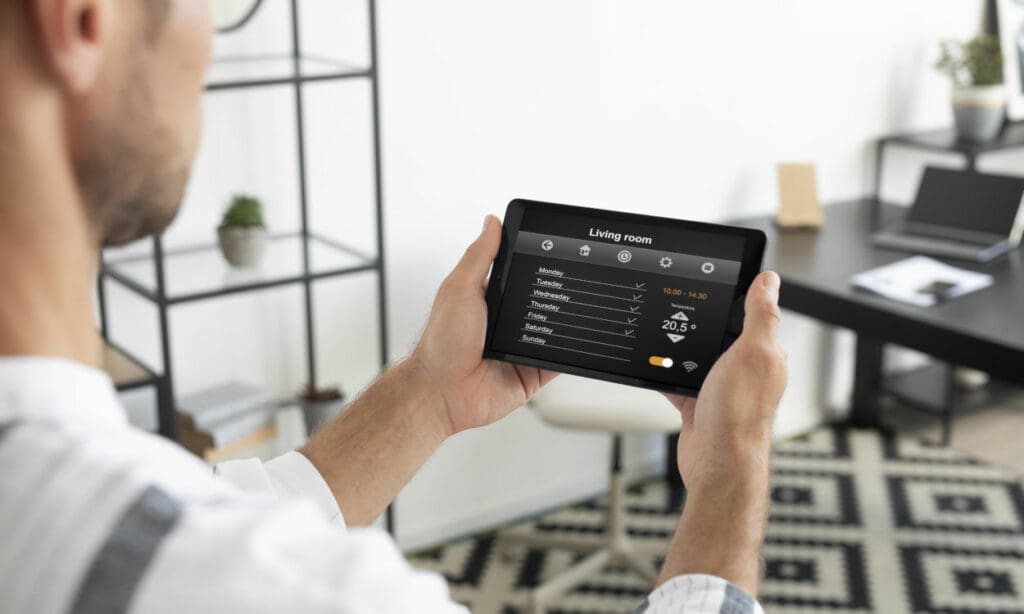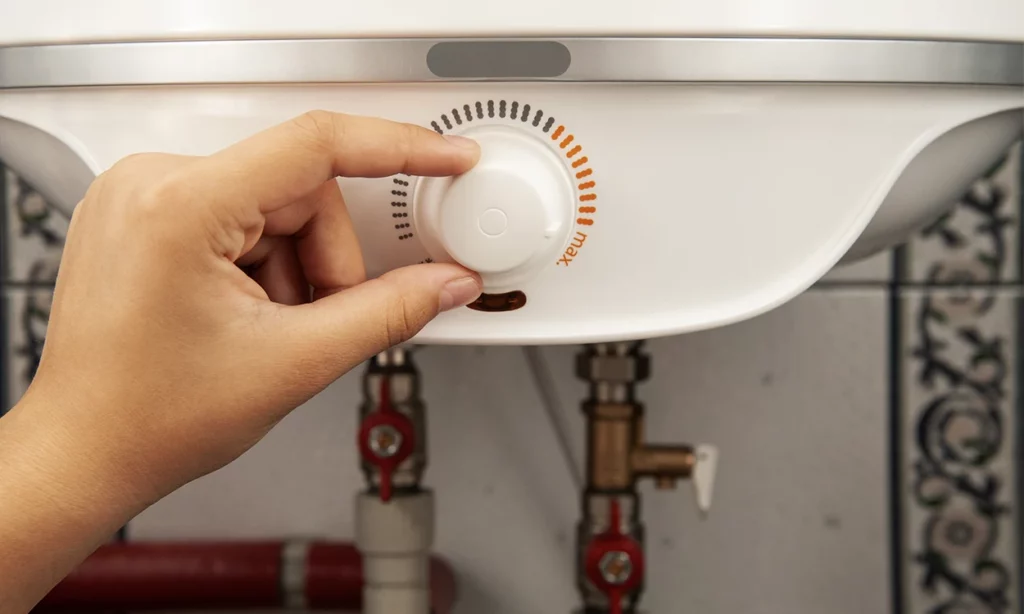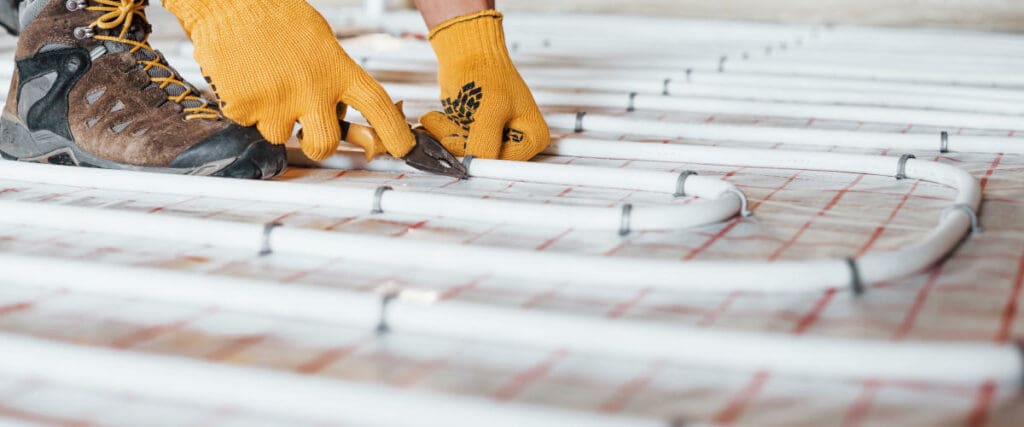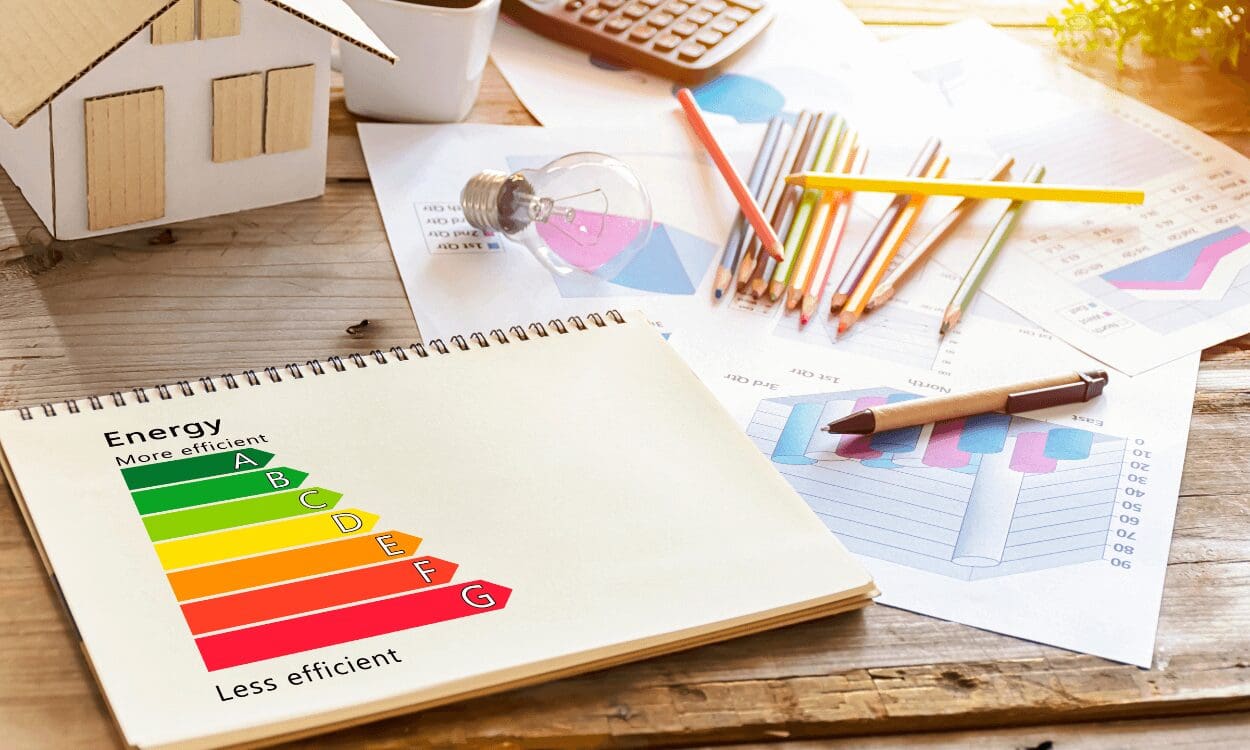With environmental issues dominating the news, and the cost of living crisis meaning that everyone is scrimping and saving, you might be wondering what you can do to improve the energy efficiency of your home. In your research, you might have come across a little acronym called an EPC rating. But what exactly is an EPC rating, and how and why should you improve your home’s score? GreenSmart are here to help with our quick guide on how to improve your home’s EPC rating.
About GreenSmart Services: Plumbing and Heating Services | Plumbing Contractors
What is an EPC rating?
EPC stands for Energy Performance Certificate. An EPC rating shows how energy efficient your property is. EPC ratings are valid for 10 years, but can be redone earlier if any improvements have been made to the property. They are key for individuals looking to buy, sell or rent properties, as it gives an indication of how much the inhabitant will spend on energy bills, and the carbon emissions of the property.
What is the EPC grading system?
Your home’s energy efficiency is measured on a scale from A to G, with A being the highest and G being the lowest possible rating. The scale is colour coded to give people a clear picture of how efficient their home is.
EPC ratings are calculated by a qualified assessor. They will test various factors, such as how much potential there is for heat and energy loss, what level of insulation you have and whether or not you have double glazing.
Following inspection, each factor will receive a score depending on its efficiency, and the assessor will work out your property’s overall EPC rating based on the average score.
The assessor also scores each part of the inspection using SAP points (Standard Assessment Procedure). SAP was introduced by the government as a way of measuring a property’s energy and environmental performance.
Each of the EPC bands are scored as follows:
- EPC rating A = 92-100 SAP points
- EPC rating B = 81-91 SAP points
- EPC rating C = 69-80 SAP points
- EPC rating D = 55-68 SAP points
- EPC rating E = 39-54 SAP points
- EPC rating F = 21-38 SAP points
- EPC rating G = 1-20 SAP points

Why should I improve my home’s EPC rating?
There are several different reasons that it might be worth you improving your property’s EPC rating. Landlords, for example, have to have an EPC rating for all of their properties, and are legally unable to rent out a property if it doesn’t meet the minimum requirement of an E.
There are plenty of other reasons why as a homeowner, you might want an EPC rating. For example, by understanding how energy efficient (or inefficient) your home is, you will be able to implement more efficient measures, which will lower your consumption and therefore reduce your energy bills. On the topic of saving money, according to the Energy Saving Trust, you may even be able to achieve lower mortgage rates through Green Mortgages.
As well as this, if you are considering selling your property, improving its EPC rating will also likely improve the value.
And lastly, if you are conscious of your carbon footprint, by understanding how efficient your house is and undertaking some simple steps to improve it, you will lower your carbon emissions.
How to improve my EPC rating?
So, we’ve spoken about what an EPC rating is, how it is graded and why you should consider improving it, but how do you go about making your home more energy efficient to boost that score right up? We are here to help with eight handy tips on how to improve your rating, ranging from relatively inexpensive to the more pricey end of the scale.
#1. Seek help from your energy supplier
First thing’s first, you might be able to get some energy-saving help from your energy supplier under the Energy Company Obligation Scheme. If you claim benefits such as Child Tax Credit, Working Tax Credit, or Universal Credit, you may be eligible for help with the cost of insulation work or replacing or repairing your boiler.
If you own your house, it must have an energy efficiency rating of D, E, F or G to be eligible for the scheme. If you rent from a private landlord, the house must have an energy efficiency rating of E, F or G to be eligible and you have to have the owner’s permission to do the work. If you live in social housing that has an energy efficiency rating of E, F or G, you might be eligible for help with insulation or installing a heating system for the first time.
#2. Upgrade the lighting to LED light bulbs
An easy way of improving your EPC score is by switching your old halogen or incandescent light bulbs with LED ones.
It won’t boost your score significantly, but if your EPC rating is right on the margin and it won’t take much to increase it by a level or two, switching to these more energy-efficient, eco-friendly light bulbs could make the difference.
LEDs have become increasingly popular over the last few years because they are efficient and could create long-term savings on your energy bills.
#3. Install a smart meter
Whilst installing a smart meter won’t improve your EPC rating on its own, it will be able to give you an insight into how much energy your home uses and a greater understanding of which changes you need to take. Because of this, you are more likely to have more success when trying to improve your EPC rating if you have a smart meter installed.

#4. Invest in double or triple-glazed windows
Most modern homes have double glazing, however if you have an older property, the single glazing might be dragging you close or even below the minimum EPC rating. By investing in double or triple-glazed windows, you can significantly reduce the amount of heat lost through your windows and help to boost your property’s EPC rating by approximately five to ten points. As well as this, it is a relatively cost-effective step, with terraced properties usually costing between £2,000-£5,000 to upgrade.
Triple glazing is a more drastic step, though it is rising in popularity. It is even more energy efficient than double-glazing as it is harder for heat to escape through the windows. However, it is a much more expensive step than double-glazing, and will not improve your EPC rating significantly.
#5. Upgrade the boiler
Heating systems are the foundation of a property’s energy efficiency. An inefficient boiler can be a severe hindrance to your EPC rating. Depending on the age of the existing boiler, switching to a new condensing model could improve your EPC rating by as much as 40 points!
Though not a cheap option, with average new boiler replacements costing anywhere between £1,000 and £3,000, you are likely to receive this initial payment back in spades and will save you a lot of money in the long run.

#6. Insulate the roof and walls
New insulation is a popular instalment among those looking to improve their EPC rating as it is one of the most effective energy-efficiency improvements you can make to your property. It’s also likely to be less expensive than alternative improvements.
Enhancing the loft insulation to a minimum thickness of 270mm can have a substantial impact on reducing heat loss. Typically, an uninsulated property allows around 33% of its heat to escape through the roof.
Improving a property’s energy efficiency rating can also be achieved through wall insulation. This applies to both cavity walls, found in modern properties with a gap between two bricklayers, and solid walls, commonly seen in older properties built before 1920.
The expenses associated with wall insulation, however, can vary significantly. On average, the installation of cavity wall insulation costs between £370 and £500 for a typical semi-detached property. This presents an easily accessible, straightforward, and relatively affordable solution that holds the potential to substantially enhance the overall EPC rating.
The installation of both internal and external solid wall insulation comes with higher costs. However, these costs are balanced by the potential for greater savings on heating bills. External solid wall insulation is estimated to range from £8,000 to £22,000, while internal insulation costs fall between £3,500 and £14,500. It’s important to note that these options are more expensive but offer substantial long-term benefits.
#7. Install underfloor heating
Another effective way of boosting your energy efficiency rating is by installing underfloor heating. Underfloor heating systems operate at lower temperatures, resulting in reduced energy consumption, provided your property effectively retains heat.
Whether used as a primary heating source or in conjunction with a central heating or radiator setup, underfloor heating holds the potential to significantly enhance your property’s energy efficiency. This is particularly true for water-based underfloor heating systems, as opposed to electric ones, as they offer more cost-effective long-term operation, despite being more complex to install.
The installation costs for underfloor heating vary, depending on a range of factors such as the system type, the overall installation area, and the age of the property. The expense can range anywhere from £50 to £200 per square metre. Be sure to seek advise from professional underfloor heating installers to guide support you.

#8. Invest in renewable energy
If you’re looking for a solution to significantly improve the EPC rating of your home over a long period, it might be worth researching renewable energy sources, such as solar panels or ground-source heat pumps.
Although these modifications require higher initial investments, opting for renewable energy systems also offers the possibility of substantially enhancing your property’s ongoing energy usage, resulting in cost savings on energy expenditures.
There are several government incentives, such as the Green Deal, that aim to assist with these expenses.
How GreenSmart can help
So, there you have it. A comprehensive guide of eight tips on how to improve your home’s EPC rating. At GreenSmart, we offer a range of different services that can improve your energy efficiency, such as boiler replacements, underfloor heating installation and various green plumbing solutions.
Get in touch with us today to speak to one of our qualified heating engineers about your specific requirements.
